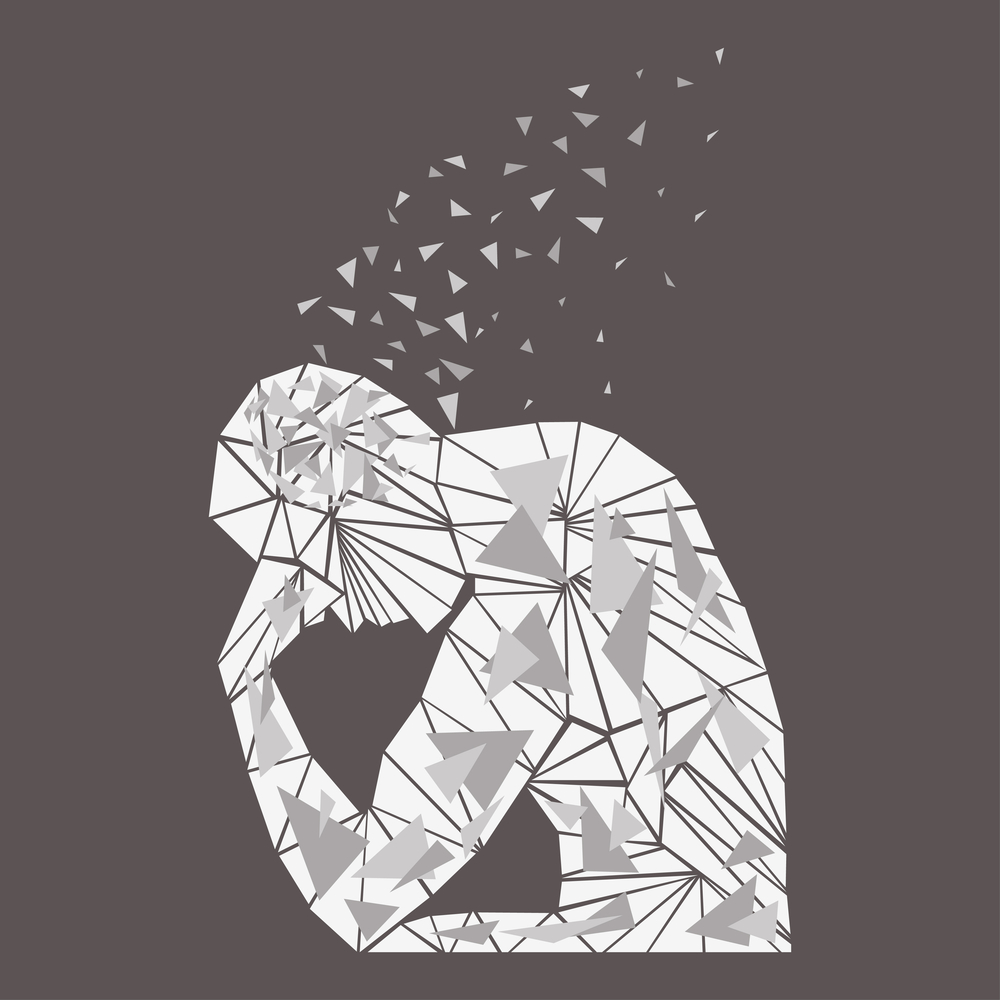In a paper given to the University of Quebec Montreal Philosophy of Psychiatry Webinar series in January, Professor Nev Jones explains the political aspects of traditional philosophical approaches to madness and calls for an ethical reckoning with the dominant approach. For Jones, psychosis is more than an object of abstract theorizing: it is a matter of meaningful lived experience.
She argues that psychosis “could never be divorced from the structural vectors of poverty, incarceration and various neoliberal welfare schemes, but has always been intimately bound up with them.”
 Yet recent forays into the study of psychopathology or phenomenological psychiatry continue to depict the mad as affected by an “impaired morality” or even “moral idiocy.” While perhaps surprising in the 21st century, this approach to madness is certainly not a historical anomaly.
Yet recent forays into the study of psychopathology or phenomenological psychiatry continue to depict the mad as affected by an “impaired morality” or even “moral idiocy.” While perhaps surprising in the 21st century, this approach to madness is certainly not a historical anomaly.
As Jones observes, such “claims regarding the different, alternative or impaired morality and existential orientation of persons with disabilities” have been, for at least two centuries, central to colonial constructions of race and “natives,” which were in turn used to justify such European innovations as colonial genocide and the transatlantic slave trade (and, later, American eugenics, which significantly influenced the Nazis).
Is there something in the relationship between madness and philosophy that explains this history of the present? Drawing on the work of French deconstructionist philosopher Jacques Derrida, Jones argues that “when it comes to psychosis most especially, the position of madness as not just an other, both the constitutive other of reasons or logos.”
Relatedly, we see in the history of philosophy and phenomenological psychopathology a fetishization of psychosis. The enabling conditions of this exotifying and exclusionary approach to madness (as other and as a fetish) surely have something to do with Western academic philosophy’s demographics problem, its totalizing approach to truth and knowledge, and its animating drive for mastery of the unknown.
Indeed, Jones writes, in an attempt to master the unknown, the practice of phenomenological psychiatry often results in the “exclusion and subjugation of the very individuals with the experiences in question, except, of course, as informants stripped of an epistemic agency which can only truly belong to the trained phenomenologist, with his distance from the subject, with his particular claims to … truth.”
All of this results in a tradition of studying madness and the mad “without ever thinking about [us] as people.” And, as we have seen throughout the history of psychiatry – in, for example, brutal conditions of institutionalization, medical experimentation, and sterilization – fetishizing psychosis becomes “a further enabling condition and form of dehumanization.”
As Jones concludes:
“When it comes to historically subjugated others, the moral stakes are, needless to say, always high. But, in the context of psychiatry, I’d take this one step further and, as the idiom goes, call it high time not just for a heightened awareness of the stakes but a deeper moral reckoning. And that won’t happen without real – structural and institutional, as well as individual – change.”
****
Jones, N. (2022). “To do justice to madness: orienting to the politics of phenomenological psychopathology.” Unpublished paper presented at the UQAM Philosophy of Psychiatry Webinar Series. (Link)















BOTH Nev Jones & Jenny Logan miss a key and crucial point. Not all psychotic people are are crazy, & not all crazy people are psychotic. Both psychosis & insanity are mutable mental states, which too often last too long. People are made psychotic & crazy, or else they just seem to go that way, for a variety of reasons, and under a variety of circumstances. “Psychotic” as a mental state is no more a singular, unique human phenomena that “happy”, or “sad” is. But both “happy” & “sad” are daily experiences for EVERYBODY, so we all miss the amazingness of being simply happy, or sad. Ah, but “psychosis”, & “psychotic” are rarer states that YES!, ARE FETISHIZED in the religious cult known as “psychiatry”.
This is the kind of University-level writing that gets enshrined in the eternal internet on obscure anti-psychiatry blogs, where only the elite cognoscenti find room to speak their twisted minds. Twas brillig & the slithy toves go ask Alice, I think she’ll know! What more needs to be said. This will be the ONLY comment here. Watch & see….
Report comment
“Yet recent forays into the study of psychopathology or phenomenological psychiatry continue to depict the mad as affected by an ‘impaired morality’ or even ‘moral idiocy.'”
I found that the psychologists and psychiatrists I had the misfortune of dealing with tended to accuse me, of what they were doing. For example, my first psychologist claimed I was “delusional” for supposedly believing in a “delusional religious conspiracy,” about which I knew nothing. When in reality, the ladies of my childhood church – years later – literally confessed to me that the church employees were “partners” with the “mental health” workers.
So that “delusional religious conspiracy” is an actual systemic medical/religious “partnership.” And since the number one actual societal function of the “mental health professions” is covering up child abuse and rape, which are crimes.
https://www.indybay.org/newsitems/2019/01/23/18820633.php?fbclid=IwAR2-cgZPcEvbz7yFqMuUwneIuaqGleGiOzackY4N2sPeVXolwmEga5iKxdo
https://www.madinamerica.com/2016/04/heal-for-life/
https://books.google.com/books?id=xI01AlxH1uAC&printsec=frontcover&source=gbs_ge_
summary_r&cad=0#v=onepage&q&f=false
And since the definition of “conspiracy” is “An agreement between two or more persons to engage jointly in an unlawful or criminal act.” The medical/religious child abuse covering up “partnership” that my ex-religion has chosen to participate in, is – in fact – a real life medical/religious criminal “conspiracy.”
Thus, an “‘impaired morality’ or even ‘moral idiocy'” is, in reality, a problem with the child abuse covering up “mental health professions” and religious leaders – not those of us who stand against child abuse.
A reminder to my ex-religion regarding what Jesus said about child abuse … “It were better for him that a millstone were hanged about his neck, and he cast into the sea, than that he should offend one of these little ones.”
I will add that since the antidepressants and antipsychotics can create “psychosis,” via anticholinergic toxidrome poisoning.
https://en.wikipedia.org/wiki/Toxidrome
A “fetishization of psychosis” is stupid, since “psychosis” is merely a common adverse and withdrawal reaction to the psych drugs.
And explaining “psychosis” is not that difficult, at least for me. When I was suffering from anticholinergic toxidrome induced “psychosis,” I got the evil “voices” of the people who abused my child in my head. Once I’d been weaned off the psych drugs, I dealt with a drug withdrawal induced “super sensitivity manic psychosis.”
The latter type “psychosis” merely functioned as a continuation of a spiritual journey, and an awakening to my dreams / subconscious self; and it was not bothersome to me, since it culminated in a “born again” type experience. And as a Christian, I know being “born again” is infinitely better than continuing to deal with child abuse covering up “mental health” and religious criminals.
Report comment